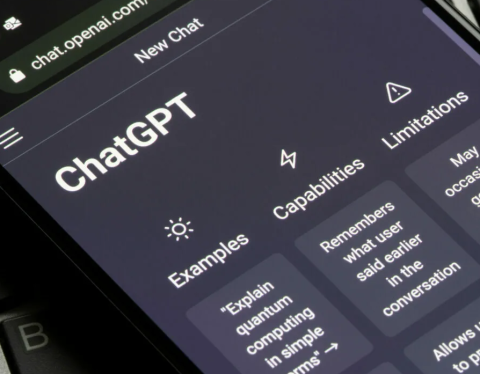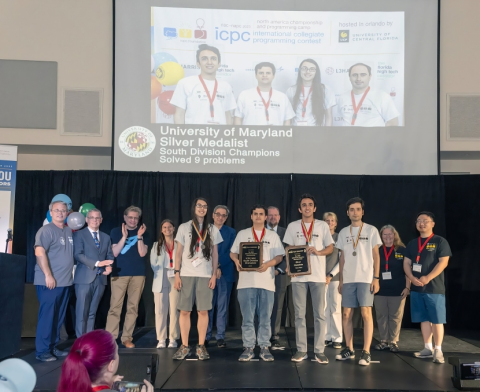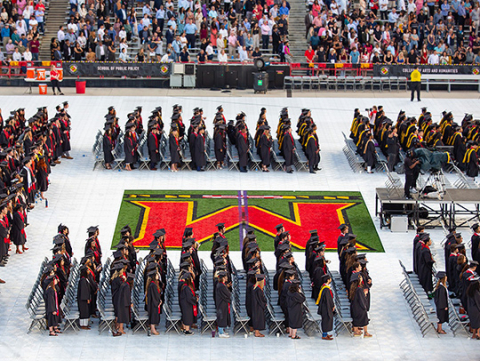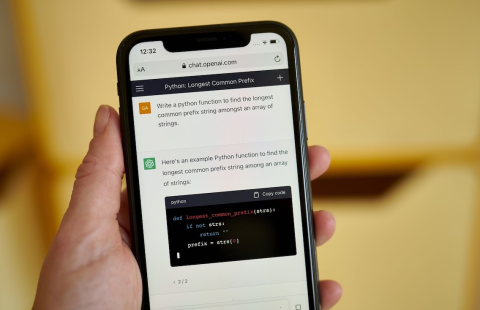Recent News & Accomplishments
2023
Suggestion comes as Washington grapples with advances in artificial intelligence.
Ben Shneiderman , a Distinguished University Professor at the University of Maryland’s Department of Computer Science, said he sees government agencies as the primary entities to take the lead in internet and AI regulation. He encouraged the involvement of accounting firms and insurance companies in auditing and regulating AI systems, emphasizing the need for collaboration among different players to address the complex challenges associated with AI. “The history of regulation shows that it can be very positive and a great trigger of innovation.” Shneiderman said at an event hosted by the... read more
Championing ethical AI, Daumé is on a mission to harness the power of technology safely and responsibly.
Hal Daumé III , a professor in the University of Maryland's Department of Computer Science, leads the new $20 million National Science Foundation (NSF) Institute for Trustworthy AI in Law and Society ( TRAILS ). With a personal passion for artificial intelligence (AI) that spans decades, Daumé is driven by the opportunity to explore the complexities of the human mind and the profound impact of AI on individuals. The institute he leads aims to establish ethical practices and responsible use of AI through a comprehensive approach, which includes broader participation in AI design, technological... read more
Colin Galen, Mohammed Mahdavi and Keivan Rezaei advance to the World Finals, which will be held in Egypt in November 2023.
A team of University of Maryland computer science students demonstrated exceptional skills and determination that earned them a second-place finish among U.S. competitors (third overall) in the North American Championship of the International Collegiate Programming Contest ( ICPC ) held on May 29, 2023. This achievement marks UMD’s best finish ever in the competition. The ICPC is a renowned global algorithmic programming contest for college students, promoting creativity, teamwork, innovation and composure under pressure. With a rich history, it has become the oldest, largest and most-... read more
He and his brothers built two successful tech ventures and launched a startup incubator at UMD.
When Zeki Mokhtarzada (B.S. ’01, computer science and mathematics) delivers his commencement speech to undergraduates this May at the University of Maryland’s College of Computer, Mathematical, and Natural Sciences, he’ll be speaking from a wealth of experience—and UMD memories. His own graduation 22 years ago was more than special. Two of his siblings also received their degrees from Maryland that day, but that commencement event—or more accurately, the moment he snuck out of it—marked the start of Mokhtarzada’s hugely successful career as a tech entrepreneur. "I remember my brother Haroon... read more
Program recognizes students for academic, extracurricular and personal accomplishments.
With flags waving at the University of Maryland’s Campuswide Commencement Ceremony on May 23, 2023, 80 stellar students led graduating Terps into commencement—including three students majoring in computer science and one minoring in computer science. The senior marshals, who carry the banners for schools, colleges and departments, are August 2022, December 2022 and May 2023 graduates who have stood out during their time at UMD for academic excellence, service to the university community, noteworthy extracurriculars and good character. “It is a joy and honor to lead the commencement procession... read more
Despite decades of eradication efforts, malaria remains a global cause of disease and death, with the greatest burden largely affecting young children in Sub-Saharan Africa. In 2021, an estimated 247 million people worldwide were infected with malaria resulting in 619,000 deaths, according to the World Health Organization (WHO). That same year, the WHO approved the first malaria vaccine which has shown to significantly reduce deaths among young children. However, compared to other adolescent vaccinations, it has modest efficacy, preventing only about 30 percent of severe malaria cases... read more
The $500,000 award aims to increase the number of Black, Latina and Native American women receiving undergraduate computing degrees at UMD
The Reboot Representation Tech Coalition (Reboot Representation) recently awarded the University of Maryland $500,000 for the RESET Project , a new program housed in the Iribe Initiative for Inclusion and Diversity in Computing (I4C) that aims to reset tech culture to Represent, Excel and Support Equity in Tech (RESET). Black, Latina and Native American (BLNA) women represent approximately 16% of the total U.S. population, yet they make up only 4% of students obtaining bachelor's degrees in computing. The landscape at UMD is similar––BLNA women make up 13% of UMD undergraduates, but only 5%... read more
The recent Ph.D. graduate from George Mason University brings a deep background in data science, computational biology and machine learning
Fardina Alam will join the University of Maryland's Department of Computer Science in August 2023 as a lecturer. Alam, who recently earned her Ph.D. in computer science from George Mason University, was honored with the department's outstanding dissertation award for her research on utilizing deep learning techniques to extract meaningful information from protein structure data. “ We are excited to welcome Dr. Alam to our department,” said Department Chair Matthias Zwicker , who holds the Elizabeth Iribe Chair for Innovation and the Phillip H. and Catherine C. Horvitz Professorship. “ With... read more
Soheil Feizi shares his thoughts on the Insufficient Reliability of Publicly Available AI Detectors and its concerns for educators
New preprint research from assistant professor Soheil Feizi and colleagues at the University of Maryland finds that no publicly available AI detectors are sufficiently reliable in practical scenarios. “They have a very high false-positive rate and can be pretty easily evaded,” Feizi told me. For example, he said, when AI writing is run through paraphrasing software, which works like a kind of automated thesaurus, the AI detection systems are little better than a random guess. (I found the same problem in my tests of Turnitin .) He’s also concerned that AI detectors are more likely to flag the... read more
The cost of operating the systems is so high that companies aren’t deploying their best versions to the public
AI chatbots have a problem: They lose money on every chat. The enormous cost of running today’s large language models, which underpin tools like ChatGPT and Bard, is limiting their quality and threatening to throttle the global AI boom they’ve sparked. Their expense, and the limited availability of the computer chips they require, are also constraining which companies can afford to run them and pressuring even the world’s richest companies to turn chatbots into moneymakers sooner than they may be ready to. “The models being deployed right now, as impressive as they seem, are really not the... read more









